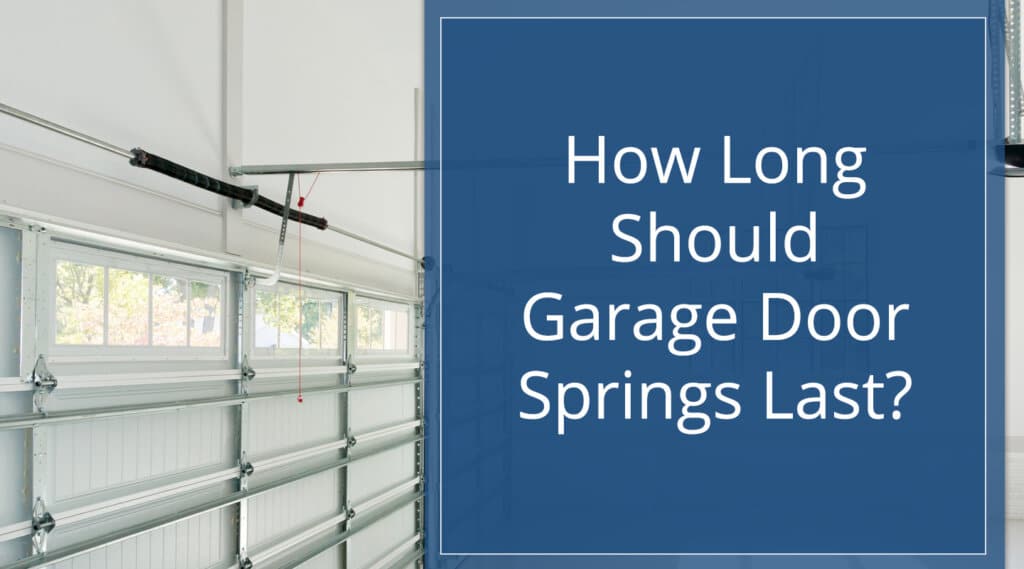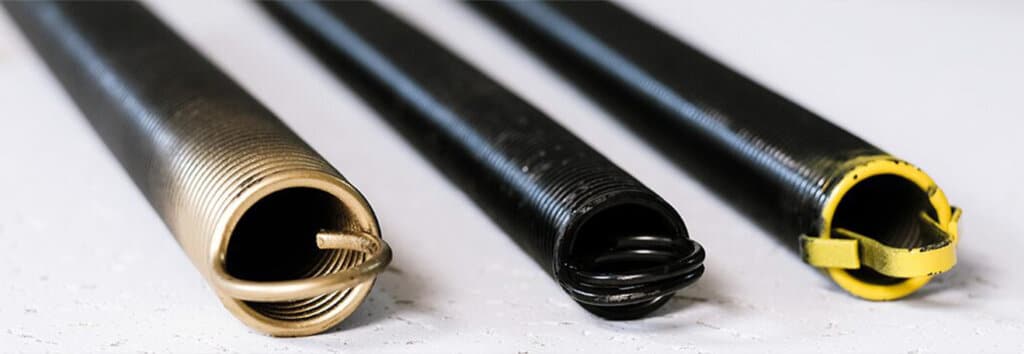
How Long Should Garage Door Springs Last?

If your garage door springs suddenly broke you may be wondering how long should garage door springs last. Although all springs have a cycle life some springs last longer than others. Much of this depends on how much use the springs get. Read on to learn more about types of garage door springs and cycle life.
How Long Should Garage Door Springs Last?
According to IDC Spring↗, the cycle life of torsion springs and extension springs vary and depend on:
- Wire size and length
- Amount of use
It’s difficult to put an actual number of cycles or years on the life of a spring because some springs inevitably break sooner than others.
Searching online, you’ll see that the average cycle life of springs is often reported to be approximately 10,000 cycles which could fall anywhere between 7 to 12 years.
Average Cycle Life Expectancy of Springs

Based on our knowledge and reports from other garage door experts online the information below may give you an idea of how long springs should last.
| Standard Cycle Springs | 10,000 cycles |
| High Cycle Springs | 25,000 cycles |
| Highest Cycle Springs | 50,000 cycles |
Are high cycle springs worth their cost? Standard cycle springs may last about 10 years while high cycle springs last 14 or more years. If the spring will outlast the door, the spring may not be a good investment. A standard cycle spring is perfect for residential garage doors and with proper maintenance may last about 7-10 years.
New Springs Broke?
New springs rarely break within a year. If the springs break they may be old, defective, or they were not installed properly. Make sure to purchase your springs from a reputable company that can provide a warranty and work with an experienced garage door technician for installation.
Springs usually need to be re-balanced within a couple of years. Rebalancing the springs addresses tension issues as the new springs begin to be “broken in”.
Top Reason Why Garage Door Springs Break
Rust
Rust build-up is one of the biggest reasons why garage door springs break. Moisture is detrimental to metal garage door components because it creates an environment ripe for rust. Rust causes corrosion and increases friction eventually killing the springs.
Preventing rust is a maintenance task, fortunately, it’s an easy one. Spray a bit of lubricant along the spring coils every few months to lubricate the springs and prevent rust buildup.
Cold is also a contributing factor to springs breaking. This isn’t a concern in warm climates but it’s helpful to know that steel contracts and becomes brittle in extremely cold weather. If you’re in a cold area and press the button to open your garage door and hear a sudden bank you’re going to be dealing with a broken spring.
How to Extend The Life of Your Springs
Maintenance is the only way to extend the life of your springs. Choose a garage spring lubricant that protects the metal spring and that won’t eat away at any paint. A common choice is WD-40 but there are also other options available that are better suited for garage door springs.
Heritage Garage Door has served Southern California homeowners for over 30 years. Explore our website to learn more about us or contact us to schedule a repair, replacement, or installation service.


